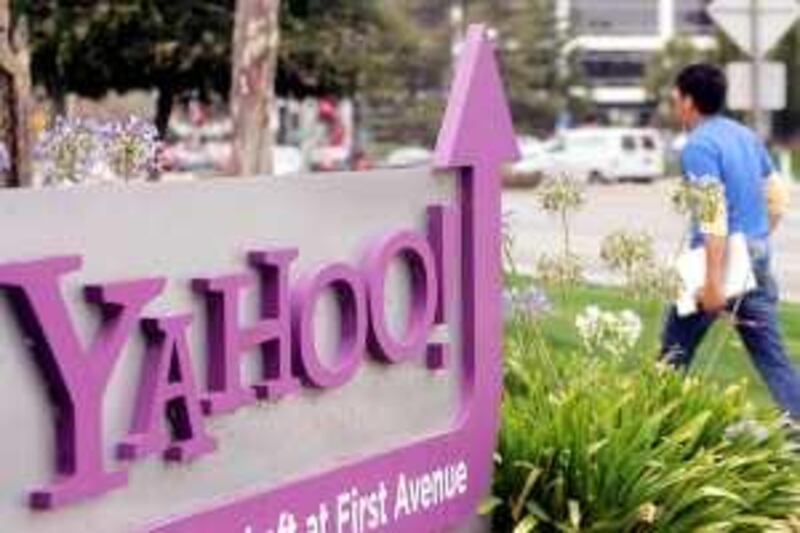Yahoo has made the most significant push into the Arab world of any major internet company after acquiring Maktoob, the region's most popular web portal. The deal is the first large-scale foreign acquisition of a Middle Eastern web business and has been hailed as a landmark by venture capitalists and internet entrepreneurs. "When we started Maktoob there were only a few thousand users and online advertising was virtually non-existent," said Samih Toukan, a co-founder of Maktoob. "Today, the story is completely different." The two companies declined to comment on the financial aspects of the deal, which has been estimated at between US$75 million (Dh275.4m) and $100m. Emile Cubeisy, who heads IV Holding, the Middle East's most active venture fund for web businesses, said the acquisition would boost the number of investors and entrepreneurs active in the region's internet sector. "When it comes to investing in web companies, the primary concern that investors have is to see realistic exit opportunities," he said. "What this deal has done is shown two things: first, that this is a market worthy of serious consideration by regional and international firms; and second, if one excels at what they are doing, it will attract real exit opportunities." Maktoob was founded in Jordan in 1998, and was a pioneer in bringing a number of globally popular internet services, such as blogging and web-based e-mail, to Arabic-speaking audiences. The site now has more than 16 million users and a staff of almost 300. The company has long been favoured by venture investors. After start-up investment from Fadi Ghandour, the founder of the logistics firm Aramex, in 2000, the site received a $2.5m investment from EFG-Hermes, the regional investment bank, through its Technology Development Fund. In 2005, Dubai's Abraaj Capital purchased a 40 per cent stake in the company in a deal estimated to have valued Maktoob at about $10m. At the end of 2007, Abraaj sold its stake to Tiger Global Management, one of Wall Street's best performing hedge funds. The company did not disclose the sale price, but said it made a 75 per cent return on its initial investment. After so many rounds of funding, it is unclear how much equity in the company remained in the hands of Maktoob's founders and employees at the time of Yahoo's acquisition. But it was "enough to make them very happy", Mr Ghandour said. "What entrepreneurs always need to remember is that it is not about how much equity you have - it is about how big the deal is." Many in the industry estimated that the founders owned 20 per cent or less of Maktoob at the time of the acquisition. But even on conservative estimates, the deal has made multimillionaires out of Mr Toukan and Hussam Khoury, who built the site together when they were still in their twenties. Omar Koudsi, the co-founder of Jeeran, Maktoob's closest competitor, was elated following news of the acquisition. "This is a great day on so many angles," he said. "It's a great day for the Arab world, because regardless of the industry, this is an American company buying an Arab one, which doesn't happen often. "And it is absolutely a great day for entrepreneurs, who should now see the depth of the opportunities that are out there." Mr Cubeisy, whose fund has invested in Jeeran, had similar thoughts on the emergence of the Arab world's first dotcom millionaires. "These guys have emerged as role models for a new generation of entrepreneurs," he said. "Now, when a kid faces their parents and says 'I want to start an internet businesses' they are not going to get laughed at." The deal also represents a triumph for Jordan, which has emerged as the Arab world's most successful hub for entrepreneurs and start-up companies. "This is a Jordan story first and an Arab entrepreneurship story second," said Mr Ghandour, a passionate advocate for Jordanian entrepreneurs. "You are going to see a lot more stories like this coming out of Jordan. We don't have oil, so this is our oil: the talent, hard work and ideas of our young people." tgara@thenational.ae
Maktoob buyout clicks with Yahoo
Yahoo makes the most significant push into the Arab world of any major internet company by acquiring Maktoob.

Editor's picks
More from the national




